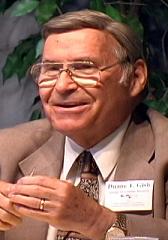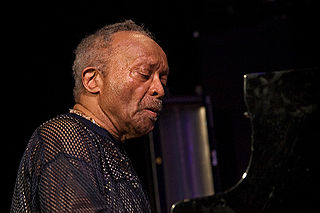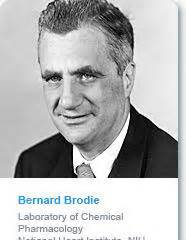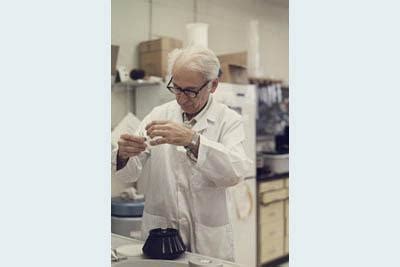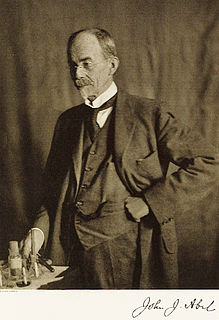A Quote by Duane Gish
What we call creation science makes no reference to the Bible. It says there are two possible explanations for the origin of the universe and living things: theistic, supernatural creation by an intelligent being, or nontheistic, mechanistic evolutionary theory that posits no goal and no purpose in the evolutionary process. We just happen to be here.
Related Quotes
Considering that we live in an era of evolutionary everything---evolutionary biology, evolutionary medicine, evolutionary ecology, evolutionary psychology, evolutionary economics, evolutionary computing---it was surprising how rarely people thought in evolutionary terms. It was a human blind spot. We look at the world around us as a snapshot when it was really a movie, constantly changing.
Like many other scientists who hold the Catholic faith, I see the Creator's plan and purpose fulfilled in our universe. I see a planet bursting with evolutionary possibilities, a continuing creation in which the Divine providence is manifest in every living thing. I see a science that tells us there is indeed a design to life.
Now, which am I to believe, a book that any impostor might make and call the Word of God, or the creation itself which none but an Almighty Power could make? For the Bible says one thing; and the creation says the contrary. The Bible represents God with all the passions of a mortal, and the creation proclaims him with all the attributes of a God.
"Methodological naturalism" and "metaphysical naturalism" are terms that often surface in the continuing battle between evolutionary biology and creationism/intelligent design. The methodological thesis says that scientific theories shouldn't postulate supernatural entities; the metaphysical thesis says that no such entities exist. In this debate, God is the supernatural entity at issue; the question isn't whether science gets to talk about mathematical entities if Platonism is correct.
Science has only two things to contribute to religion: an analysis of the evolutionary, cultural, and psychological basis for believing things that aren't true, and a scientific disproof of some of faith's claims (e.g., Adam and Eve, the Great Flood). Religion has nothing to contribute to science, and science is best off staying as far away from faith as possible. The "constructive dialogue" between science and faith is, in reality, a destructive monologue, with science making all the good points, tearing down religion in the process.
We are called to assist the Earth to heal her wounds and in the process heal our own - indeed, to embrace the whole creation in all its diversity, beauty and wonder. This will happen if we see the need to revive our sense of belonging to a larger family of life, with which we have shared our evolutionary process.
The more evolutionary theory gets called an atheistic theory, the greater the risk that it will lose its place in public school biology courses in the United States. If the theory is thought of in this way, one should not be surprised if a judge at some point decides that teaching evolutionary theory violates the Constitutional principle of neutrality with respect to religion.
Of all the statements that have been made with respect to theories on the origin of life, the statement that the Second Law of Thermodynamics poses no problem for an evolutionary origin of life is the most absurd… The operation of natural processes on which the Second Law of Thermodynamics is based is alone sufficient, therefore, to preclude the spontaneous evolutionary origin of the immense biological order required for the origin of life.
